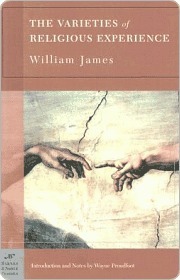More on this book
Community
Kindle Notes & Highlights
First, what is the nature of it? how did it come about? what is its constitution, origin, and history? And second, What is its importance, meaning, or significance, now that it is once here? The answer to the one question is given in an existential judgment or proposition. The answer to the other is a proposition of value, what the Germans call a Werthurtheil, or what we may, if we like, denominate a spiritual judgment. Neither judgment can be deduced immediately from the other. They proceed from diverse intellectual preoccupations, and the mind combines them only by making them first
...more
I make these general remarks about the two sorts of judgment, because there are many religious persons—some of you now present, possibly, are among them—who do not yet make a working use of the distinction, and who may therefore feel first a little startled at the purely existential point of view from which in the following lectures the phenomena of religious experience must be considered. When I handle them biologically and psychologically as if they were mere curious facts of individual history, some of you may think it a degradation of so sublime a subject, and may even suspect me, until my
...more
Even more perhaps than other kinds of genius, religious leaders have been subject to abnormal psychical visitations.
It is true that we instinctively recoil from seeing an object to which our emotions and affections are committed handled by the intellect as any other object is handled. The first thing the intellect does with an object is to class it along with something else. But any object that is infinitely important to us and awakens our devotion feels to us also as if it must be sui generis and unique.
Such cold-blooded assimilations threaten, we think, to undo our soul's vital secrets, as if the same breath which should succeed in explaining their origin would simultaneously explain away their significance,


